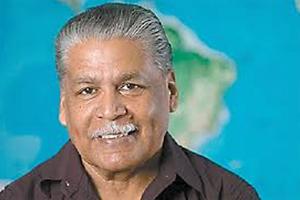Well before I thought about writing a column on the internal elections in the United National Congress, I deliberately decided that I will not focus on individual candidates but more on the process. In democracies such as ours, there are always several interest groups that comprise the backbone of the parties which differ very little on critical issues such as the economic policies, crime and punishment, education and so on. Indeed, if you didn’t know the individuals involved in running for office, you would think they were “liming partners” who are provoking each other in what could be rum-shop talk.
The battle in the UNC pits Kamla Persad-Bissessar, who had led since she booted Basdeo Panday out of contention from any office just before the 2010 general election, against members who had been her loyal supporters before they seemed to have fallen out. In past battles for leadership and other key positions in the UNC the verbal exchanges came close to hostility. More often than not, relations between the contestant who ran against the leader’s team did not fare well after the leader won and all but banished them from the chosen few who run the party and, by extension, the Cabinet.

There was no way therefore I could write on the internal elections of the UNC without delving into the autocrats who masquerade as democrats. Therein lie the fallacies of what form of government we have, what system the majority of citizens want, taking us a full circle to: a people get .
















